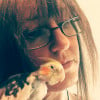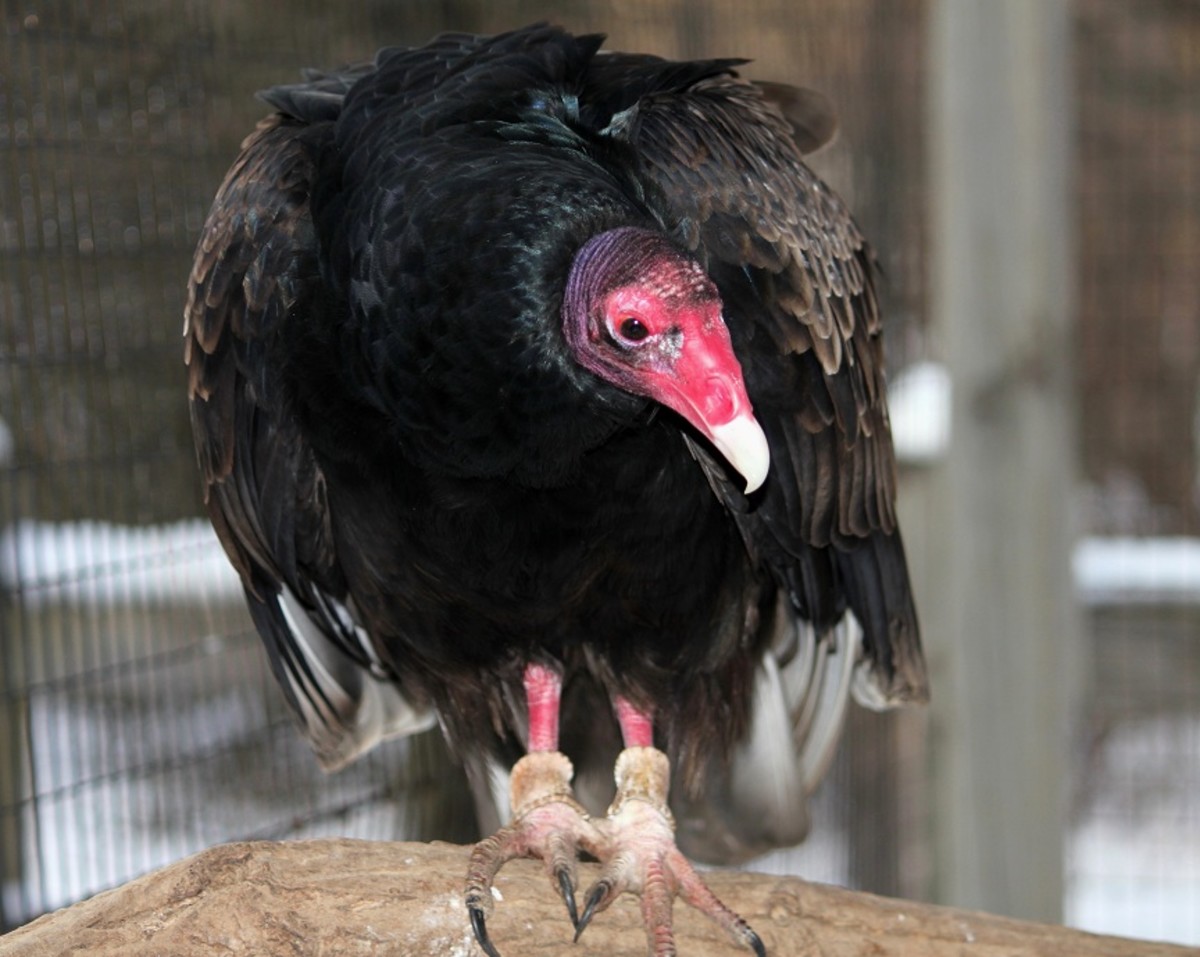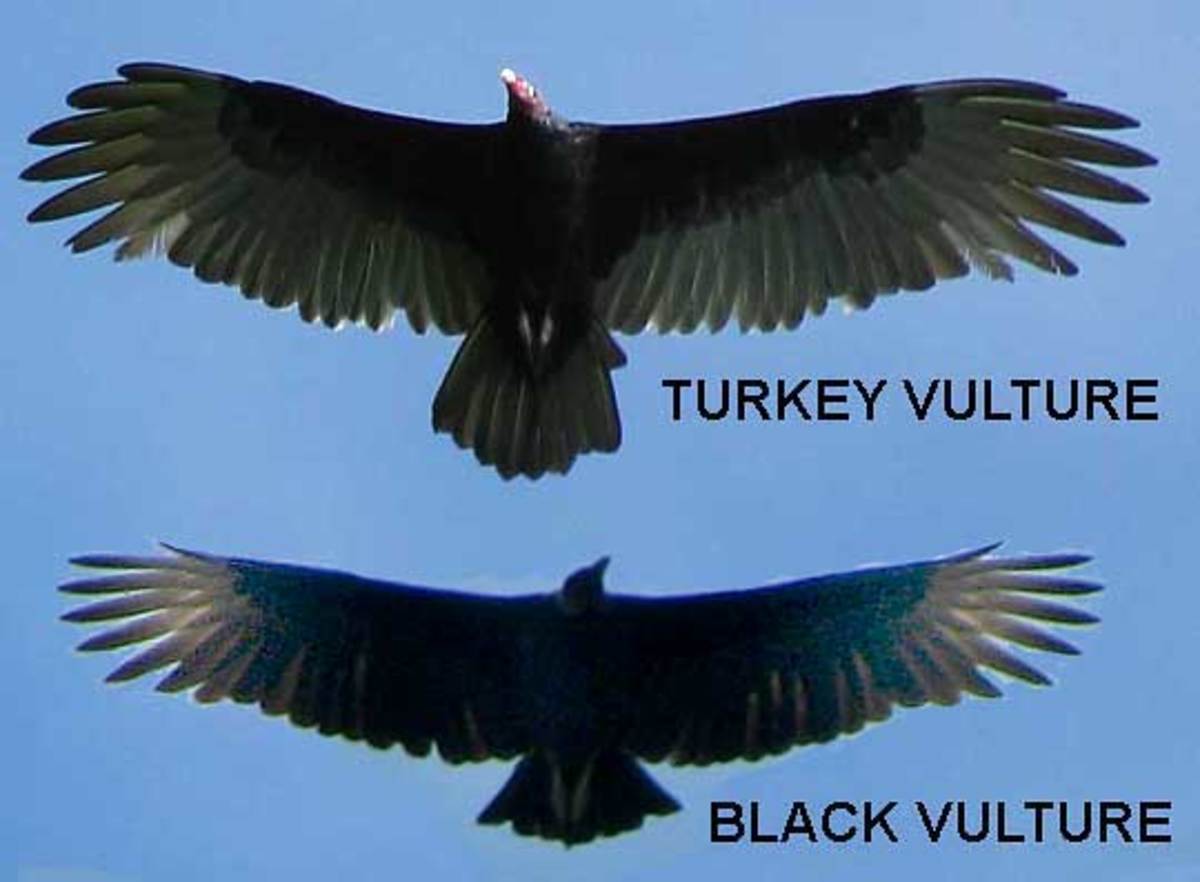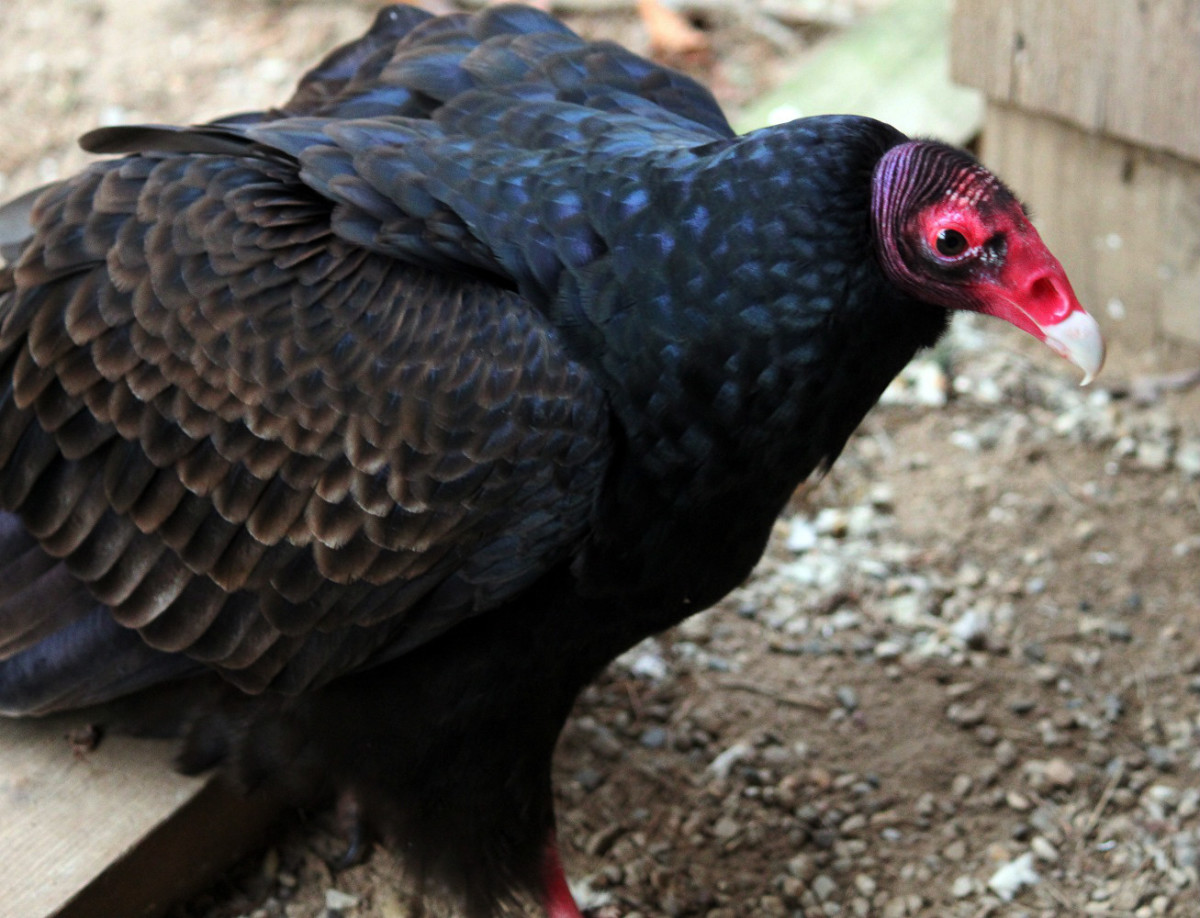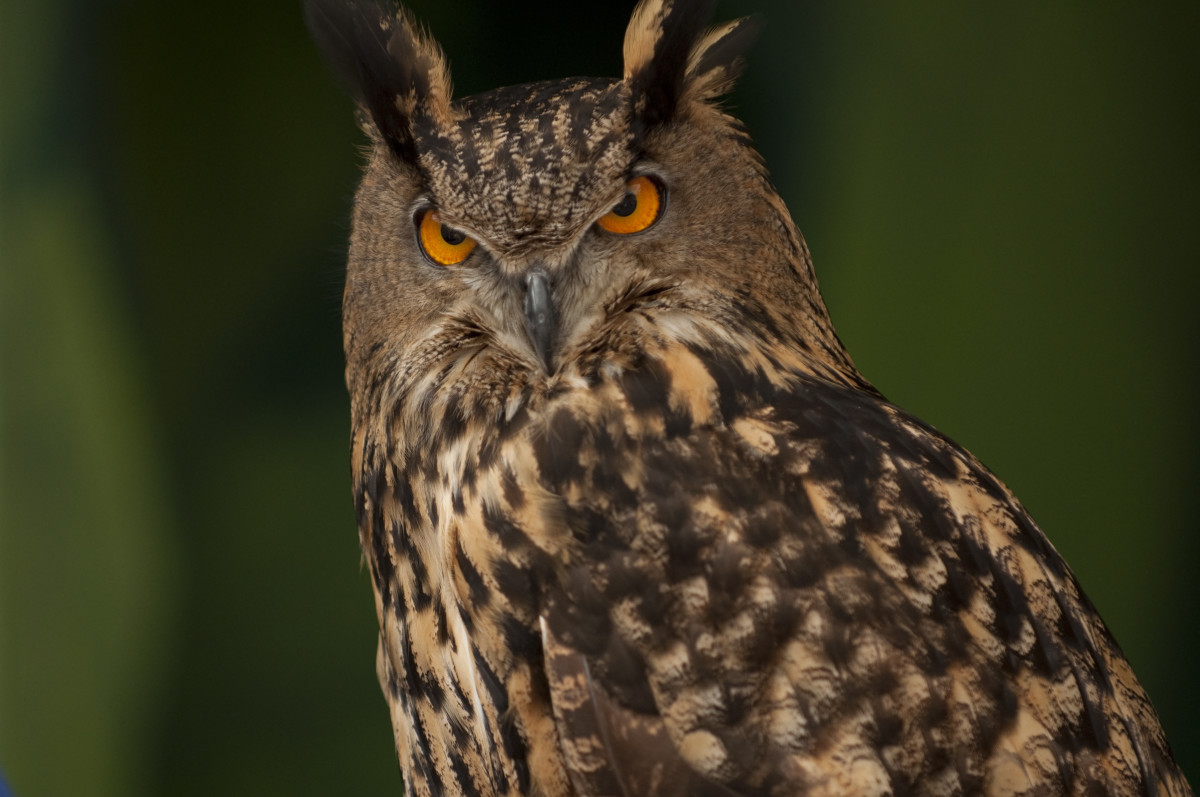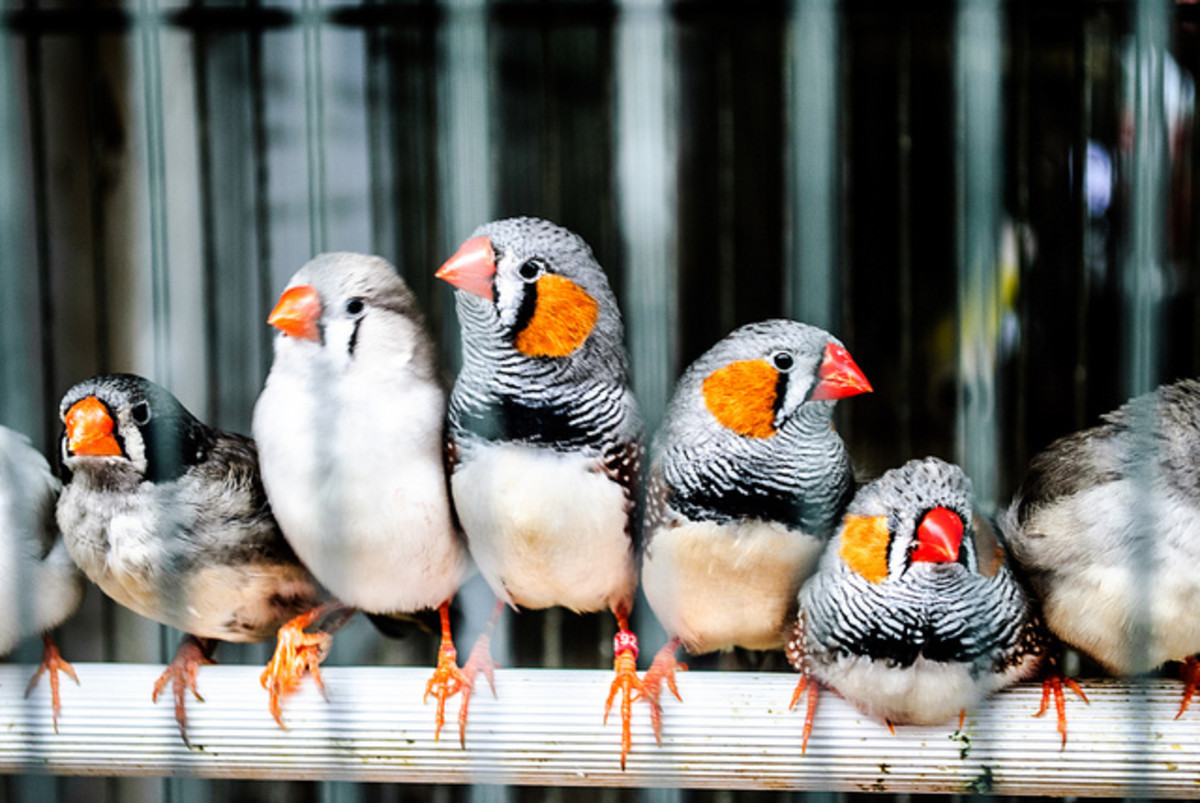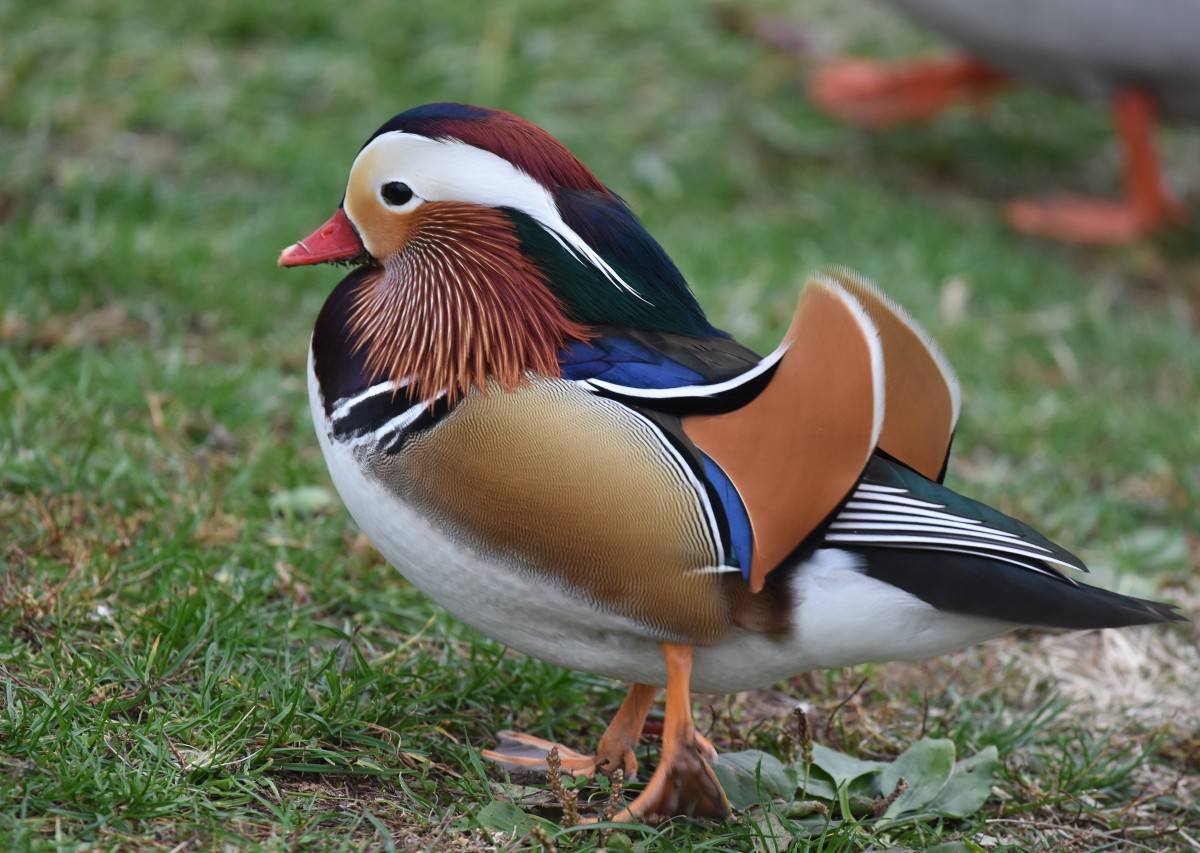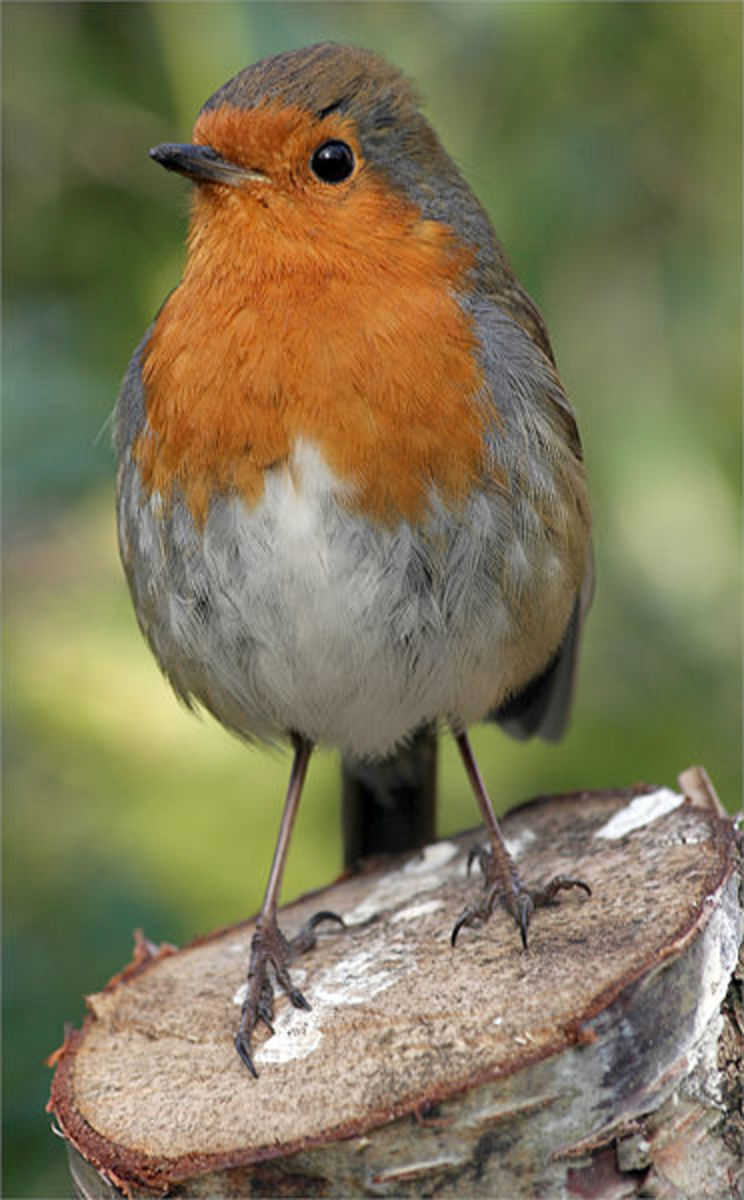Endangered Birds: The Egyptian Vulture
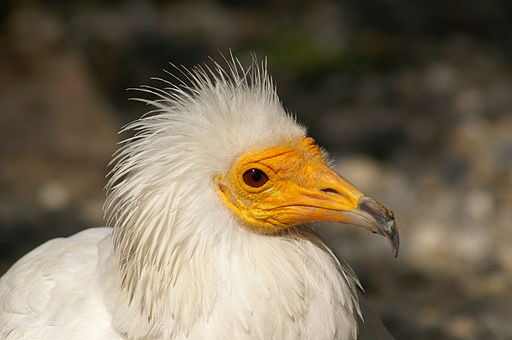
There are several different vulture species throughout the world. Most of us in the western hemisphere are most familiar with New World vultures, such as the turkey vulture or black vulture. However, there are 16 Old World vulture species on the other side of the world. Some of these species are threatened or endangered, largely due to human interference.
Meet the endangered Egyptian vulture.
The Egyptian Vulture's Physical Description
The Egyptian vulture has white feathers over most of the body. The wings have black feathers as well. As we know, white can be difficult to keep clean, and wild Egyptian vultures often look a little dirty (captive ones tend to stay bright white). They have fluffy feathers on their heads, giving them an almost "rock star" look. Their faces are featherless and yellow in color, and the bills are black or tan. The Egyptian vulture is small as far as Old World vultures go - they are about 19 - 22 inches long with a wingspan of around six feet.
Range and Habitat
The Egyptian vulture's range isn't limited to Egypt. They are also found in other parts of the Middle East (such as, Iraq, Iran, Saudi Arabia, and Turkey), Africa, India, China, Russia, and southern Europe. They generally prefer to live in plains and low mountains, but they are adaptable. They can also be found near human villages and towns, especially in areas close to garbage dumps. Groups of them will roost together in trees, on cliffs, or on buildings.
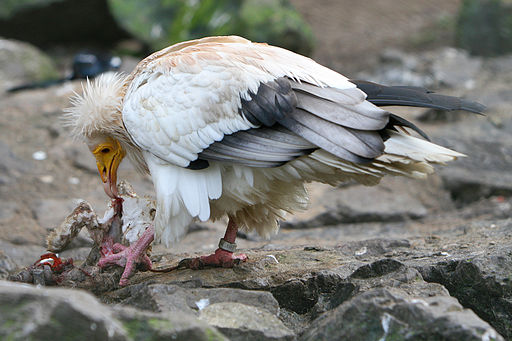
Diet
Like other vultures, the Egyptian vulture is a scavenger, so a large portion of their diet consists of carrion. They also eat eggs, insects, rotting fruits and vegetables, and animal droppings. When they find an egg that they can't crack open with their beaks, such as an ostrich egg, they will use rocks or pebbles to break the shell and get to the tasty inside.
Breeding
Egyptian vultures breed in spring. When two birds are courting each other, they often perform aerial dances together that include spirals and dives. Like many birds, they are generally monogamous. Some pairs only stay together for one breeding season, but others stay together for much longer. Egyptian vultures are occasionally polyandrous - a female will take a second male, and the three of them raise the young together. Several pairs (or trios) will nest in the same area, usually on cliff ledges, in trees, or on buildings. The female will usually lay two eggs, but she will sometimes lay one or three.
The eggs begin to hatch after about six weeks, and the babies fledge after three or four months. Egyptian vultures have brown feathers until they are four or five years old, at which time they will grow in their white adult feathers.
Conservation status
In the year 2004, the Egyptian vulture was listed as a species of least concern. Now, while not critically endangered, the Egyptian vulture is listed as an endangered species because their numbers have declined dramatically over recent years (their status was originally changed in 2007). The biggest decline has been seen in India, where the population has dropped about 90% in the past decade. Europe has also seen a significant drop of about 50%, but over 40 years.
There are several possible reasons for the decline. Avian pox has killed many vultures in Bulgaria. In other parts of Europe, the birds have been electrocuted on power lines. They have also been poisoned from eating meat contaminated with pesticides or lead from gunshot. In India, the main culprit may be the veterinary drug, Diclofenac. This drug is a non-steroidal anti-inflammatory (NSAID) that has been given to livestock to treat inflammation. When the cattle die, the vultures eat the meat and the drug gets into their systems. While generally harmless for cattle, the drug is dangerous to birds. It's been implicated in killing off other vultures, such as the White-rumped vulture, so many believe it is having the same effect on Egyptian vultures.
To help keep the Egyptian vulture alive, Diclofenac has been banned for veterinary use in India, Nepal, and Pakistan. However, the human version of the drug is still available, and many people continue to use it for animals. The birds are also being monitored, and safe food is being provided. These are great first steps, but there's still work to be done.
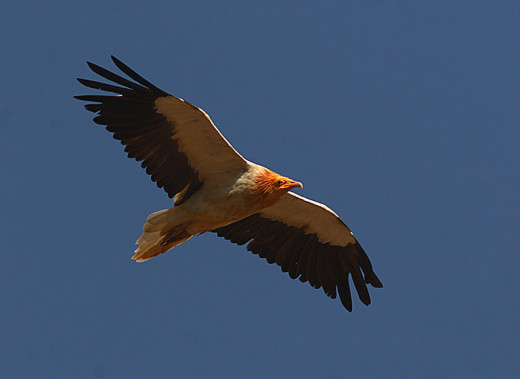
Other Egyptian Vulture Facts
- When Egyptian vultures aren't nesting, eating, or roosting, they are usually alone or in pairs.
- They can travel 80 kilometers (roughly 50 miles) every day while looking for something to eat.
- Though vultures usually eat animals that are already dead, the Egyptian vulture will occasionally eat live prey such as fish, chicks, or sick or injured small mammals.
- Another name for the Egyptian vulture is "Pharaoh's chicken." In ancient Egypt, vultures were seen as sacred to the goddess Isis, and they were also a symbol of royalty. Killing one was against Pharaonic law.
- The Egyptian vulture's scientific name is Neophron percnopterus. They are the only species in the entire genus. The name Neophron comes from a character in Greek mythology of the same name, who was turned into a vulture by Zeus.
